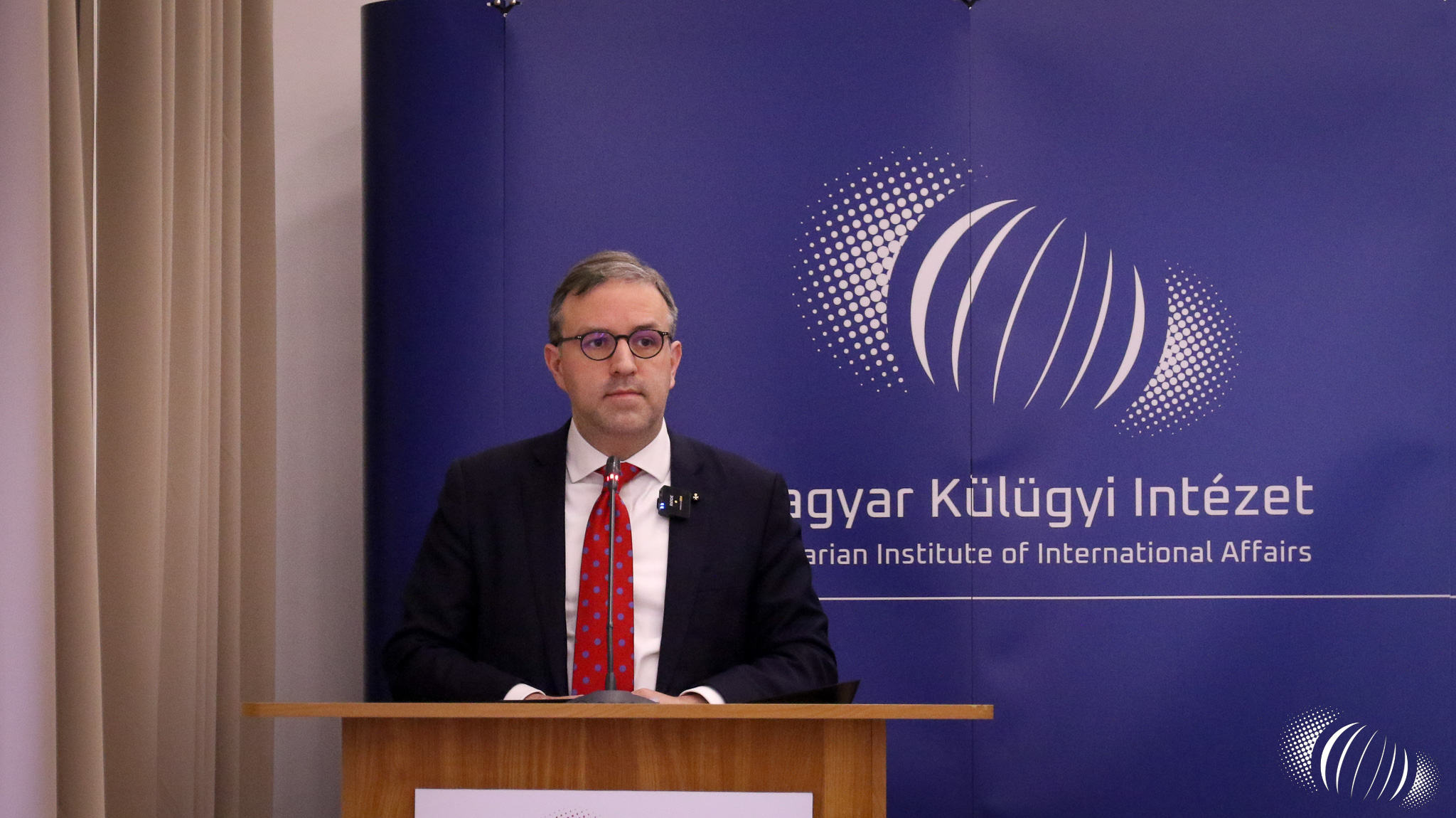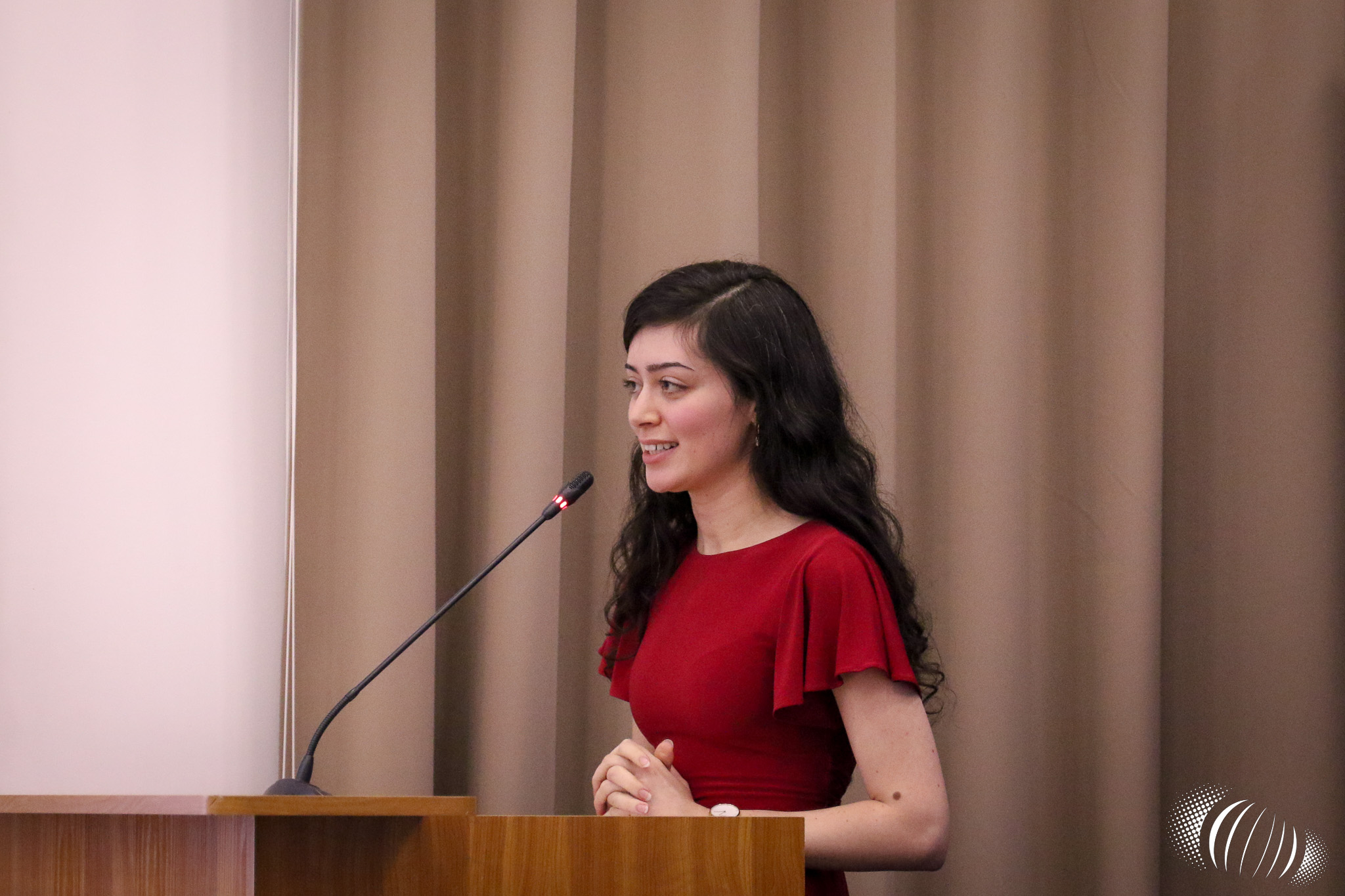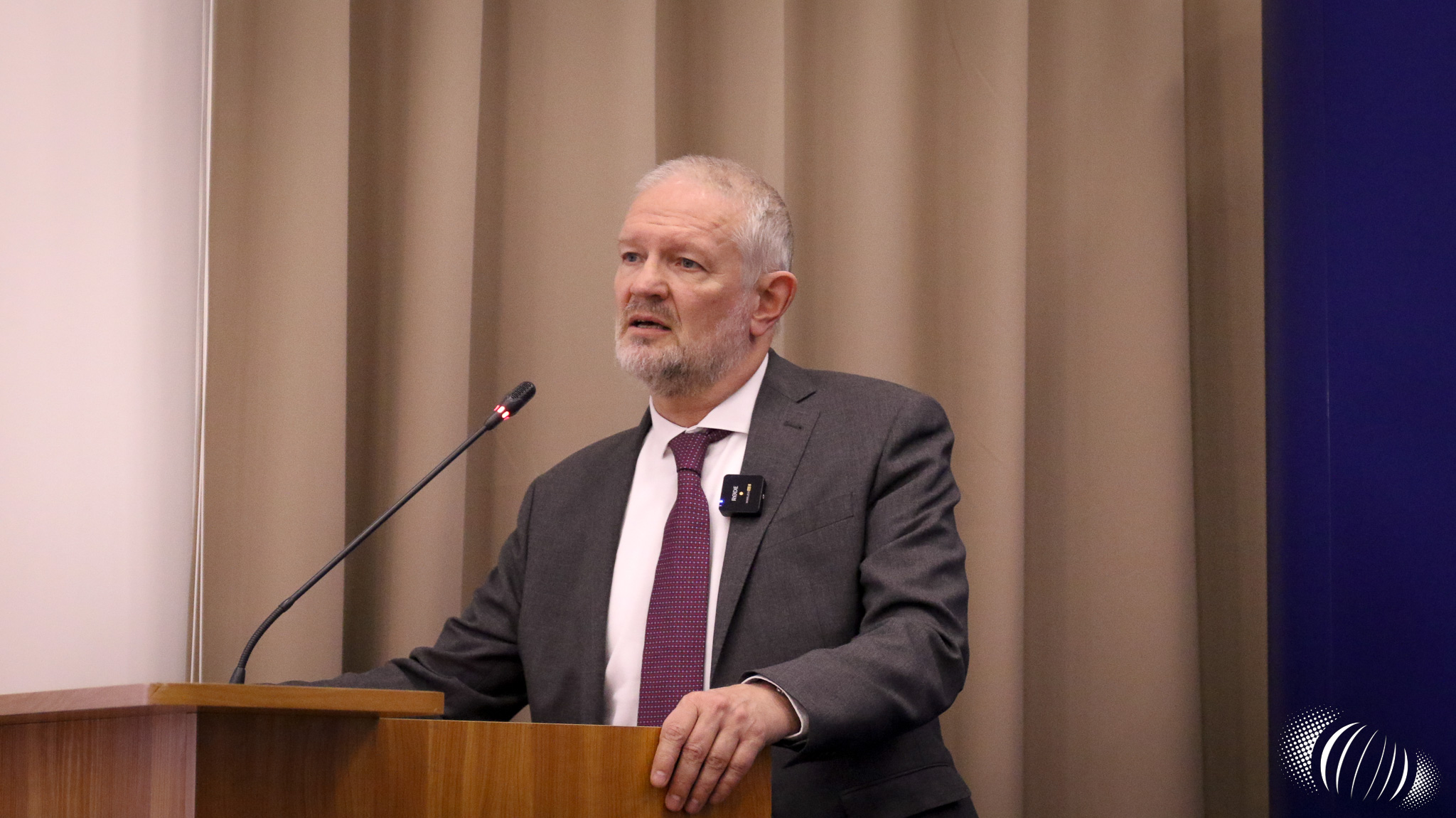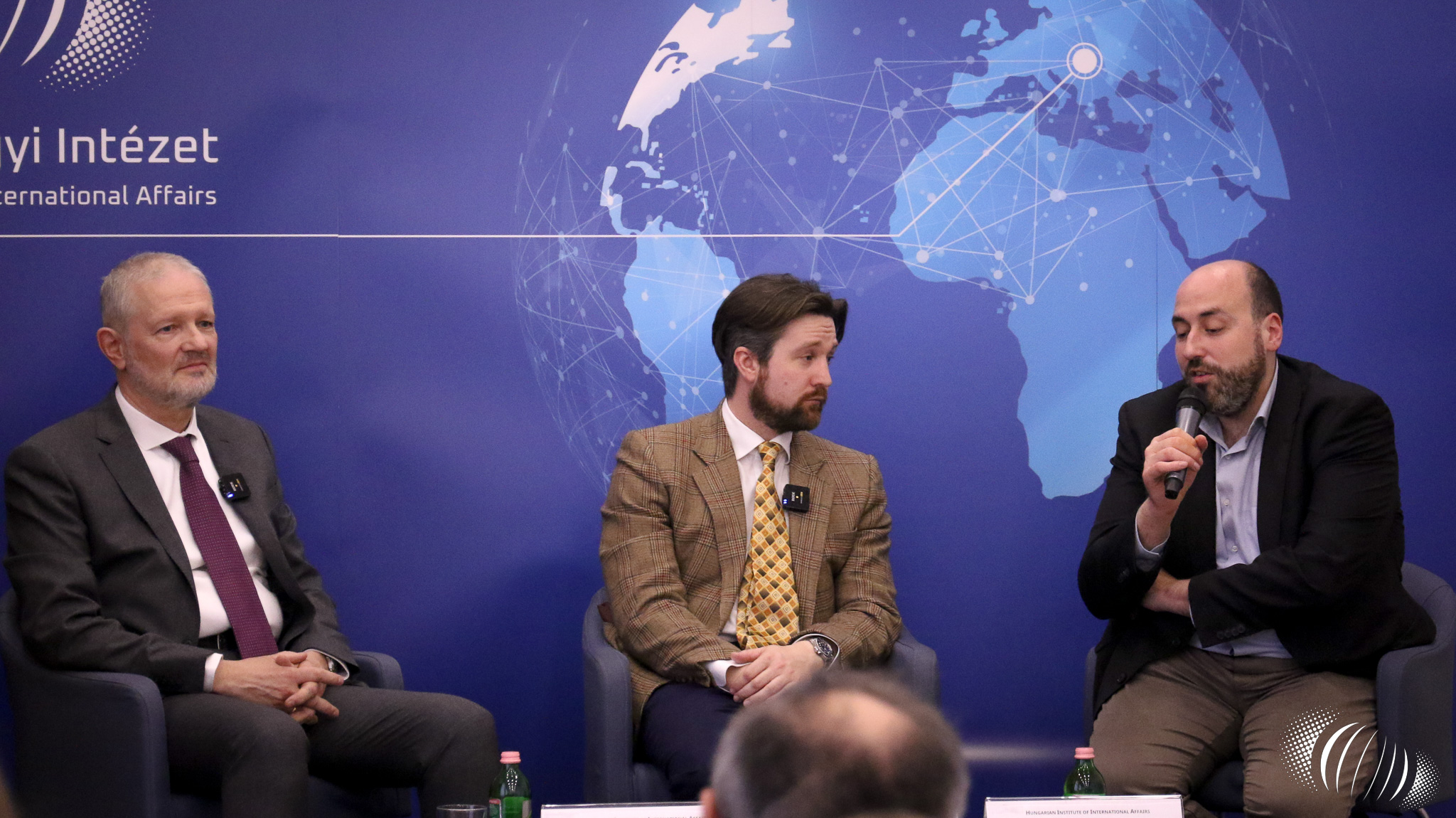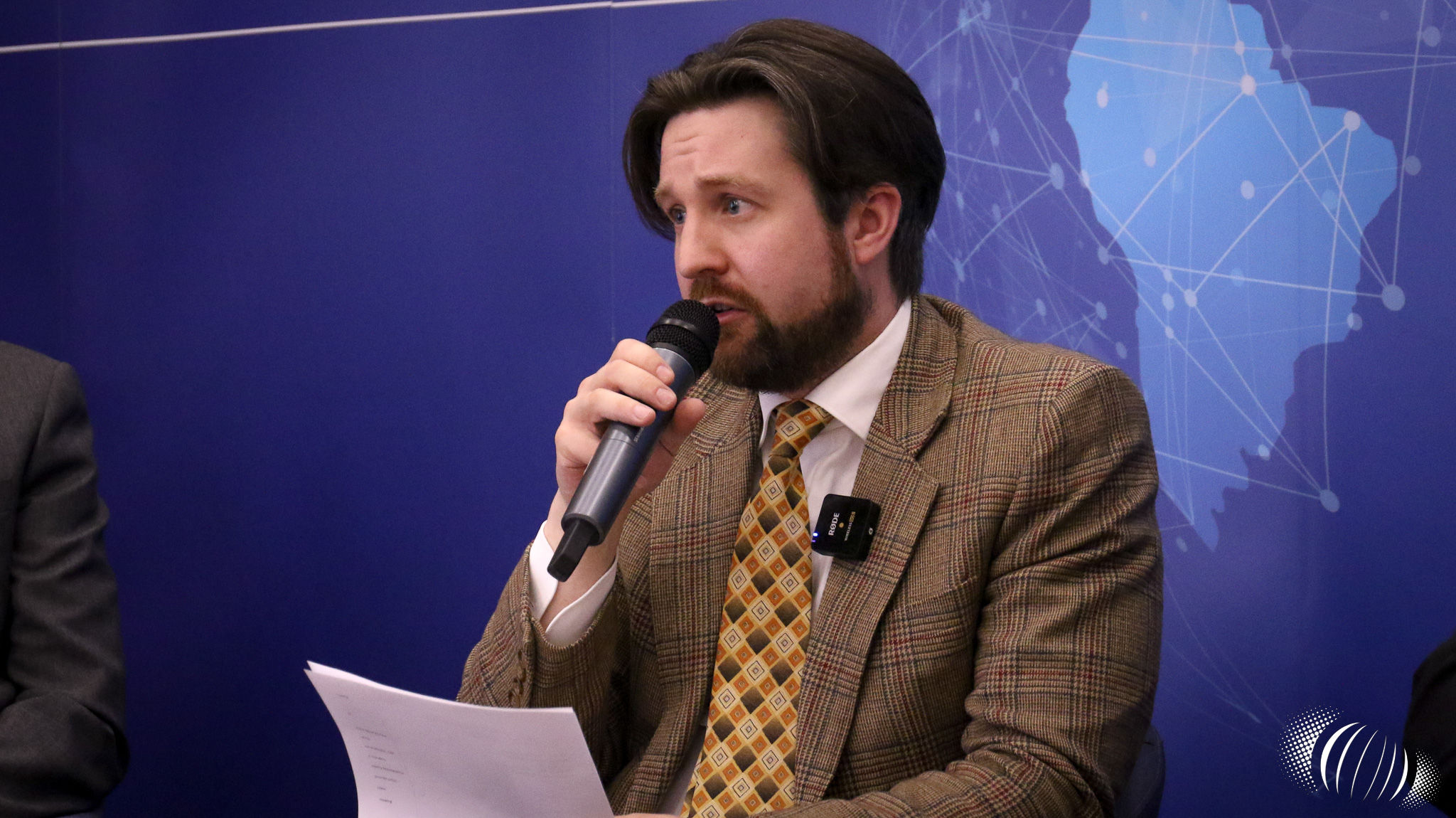On March 6, 2025, the Hungarian Institute of International Affairs held an event titled, “Unpacking the Price: Who Pays for Ukraine’s EU Ambitions.” The discussion served as an opportunity to clarify the possible magnitude of the costs of Ukraine’s accession into the European Union. The event was opened by Gladden Pappin, President of the Hungarian Institute of International Affairs. Senior Research Fellow Péter Siklósi then presented the institute’s recent paper on the topic, which was followed by the panel discussion with Senior Research Fellows Péter Siklósi and Philip Pilkington, moderated by Tamás Baranyi, Director of Strategy at the institute.
Gladden Pappin highlighted in his opening remarks that now that the prospects for ending the war are much greater given the new American position, the possibility of Ukraine’s EU accession is becoming a reality, but that the political consequences and the financial burden it would put on Europe cannot be ignored. That is why the institute conducted a sobering analysis about what the European Union—and Hungary—would have to pay over 5 years if Ukraine joined. The number according to the analysis is staggering: €48 billion for Hungary and €2.447 trillion euros for the EU as a whole. For the average worker in Hungary, this would mean a burden of 4 million forints over 5 years.
The opening remarks were followed by the presentation of the analysis by Péter Siklósi, one of the authors. He clarified that the issue is in fact imminent because the EU wishes to offer Ukraine a fast-track accession by 2030. Even though the figures presented in the analysis are calculated assuming that Ukraine joined by the end of the year, the magnitude of the costs would not really change much even five years later. There are many financial and political problems with accession. On the financial side, Europe would have to share the burden when it comes to supporting the reconstruction of Ukraine, further rearmament efforts, internal security of the state, and the Ukrainian state broadly, just to name a few examples. Additionally, Europe would have to do this while spending on its own rearmament efforts, resulting in multiple strains on our financial capabilities. Finally, Ukraine’s accession would result in the restructuring of the cohesion and Common Agricultural Policy (CAP) funds, massively favoring Ukraine to the detriment of member states like Hungary. On average, Hungarian farmers would receive 3.2 million forints less support from CAP than previously. But there are political problems as well. On hand one, Western Balkans states may justifiably be angry at the fast-track special treatment after waiting for close to 20 years. On the other hand, Ukraine’s size would completely reshuffle the balance of power in the European Parliament and the Council. Finally, the European Union does have a mutual defense clause, which if triggered by a new conflict between Ukraine and Russia, could pull the whole of Europe into a war.
In the panel, Pilkington further explained the costs for the EU. Estimations for the reconstruction of Europe range from 500 billion to 1 trillion euros, with the caveat that estimated cost projections are increasing each year. Meanwhile, financing other aspects that Siklósi as mentioned are around 100-200 billion euros each. In his opinion, European decision-makers have not thought the costs through seriously and will only be able to finance these costs with debt – which, along with the interest it will entail will endanger the economic stability of many already highly indebted European countries. Answering the question on whether reconstruction can be an opportunity for business, he answered that while actors in the construction sector will surely be happy, Ukraine can easily become a financial black hole with inefficient spending and entrenched corruption due to both country conditions and the fact that there seems to be no exact plan on exactly what to spend on.
On the question of how and why EU leaders ignore these issues, Siklósi explained his opinion that, on one hand, the EU ruling elite seems much more afraid of the mostly liberal media structure than the possible long term grievances of the populace (due to the burden EU countries may accept with reconstruction and EU-accession), and that often the moral argument seems to be their only argument for Ukraine’s accession. In his opinion, the moral argument is valid, but it cannot be the only one and thus the decisive opinion in such a consequential matter.

